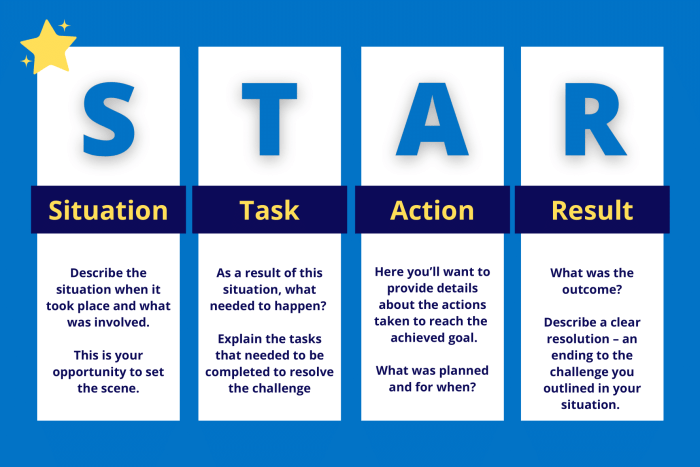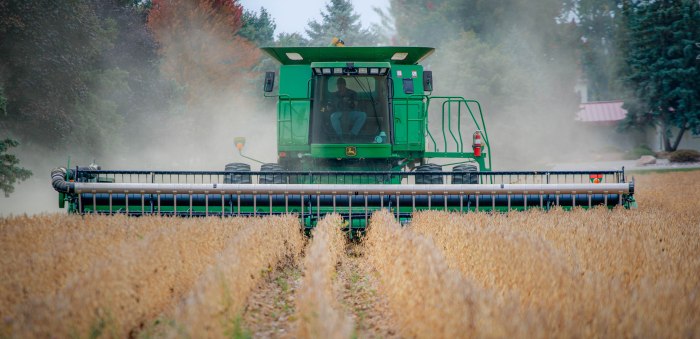John Deere STAR interview questions are a crucial component of the hiring process at this renowned agricultural machinery manufacturer. Understanding the purpose, types, and strategies for answering STAR questions can significantly enhance your chances of making a positive impression and securing your desired role.
This comprehensive guide provides an overview of STAR interview questions, their significance in the John Deere hiring process, and effective preparation and answering techniques. By delving into real-world examples and leveraging practical advice, you can confidently navigate the STAR interview process and showcase your alignment with John Deere’s values.
Overview of John Deere STAR Interview Questions

STAR interview questions are a structured method of interviewing candidates that focuses on specific experiences and behaviors. They are used by John Deere to evaluate candidates’ skills, knowledge, and alignment with the company’s values.
STAR questions follow a specific format: Situation, Task, Action, Result. Candidates are asked to provide a brief overview of a relevant experience, the task they were responsible for, the actions they took, and the results of their efforts.
Types of STAR Questions Used by John Deere, John deere star interview questions
John Deere uses a variety of STAR questions to assess candidates’ abilities. These questions can be classified into different categories, including:
- Behavioral questions:These questions focus on candidates’ past behaviors in specific situations. For example, “Tell me about a time when you had to overcome a challenge.”
- Situational questions:These questions ask candidates how they would handle a hypothetical situation. For example, “How would you handle a conflict with a colleague?”
- Technical questions:These questions assess candidates’ technical skills and knowledge.
For example, “Describe your experience with John Deere equipment.”
Preparing for STAR Interviews at John Deere
To prepare for a STAR interview at John Deere, candidates should:
- Research the company and its culture:Visit John Deere’s website, read about the company’s history and values, and talk to current or former employees to learn more about the company’s culture.
- Identify and prepare relevant experiences:Think about your past experiences and identify those that are most relevant to the job you are applying for.
Be prepared to discuss these experiences in detail using the STAR method.
Answering STAR Questions Effectively
To answer STAR questions effectively, candidates should:
- Use the STAR method:Clearly state the Situation, Task, Action, and Result of your experience.
- Be concise and specific:Provide clear and specific details about your experience, but keep your answers brief and to the point.
- Highlight transferable skills:Focus on highlighting the transferable skills that you demonstrated in your experience, such as problem-solving, communication, and teamwork.
- Demonstrate alignment with John Deere’s values:Show how your experience and skills align with John Deere’s values, such as integrity, innovation, and customer focus.
Examples of STAR Questions and Answers
| STAR Question | Sample Answer |
|---|---|
| Tell me about a time when you had to overcome a challenge. |
|
| How would you handle a conflict with a colleague? |
|
Questions and Answers
What is the purpose of STAR interview questions?
STAR interview questions aim to elicit specific examples of your past experiences that demonstrate your skills, abilities, and behaviors. By providing structured and detailed responses, you can effectively showcase your qualifications and alignment with the company’s values.
How do I prepare for STAR interview questions?
To prepare for STAR interview questions, research the company and its culture, identify relevant experiences that align with the job requirements, and practice structuring your answers using the STAR method.
What are some common types of STAR questions?
Common types of STAR questions include behavioral questions that focus on your past actions and behaviors, situational questions that present hypothetical scenarios, and technical questions that assess your specific skills and knowledge.
